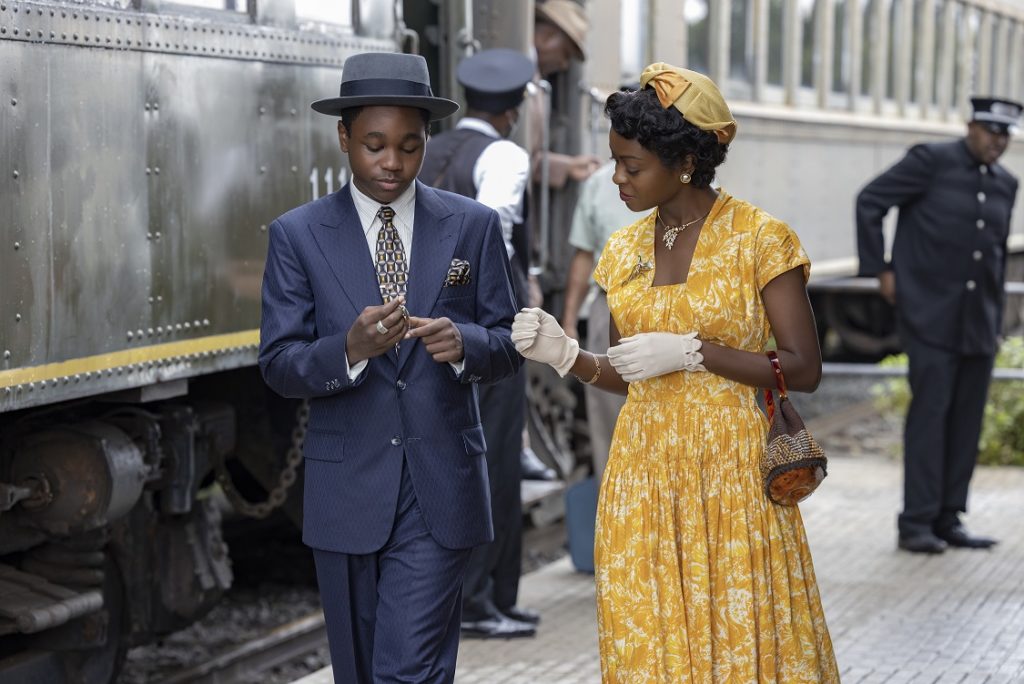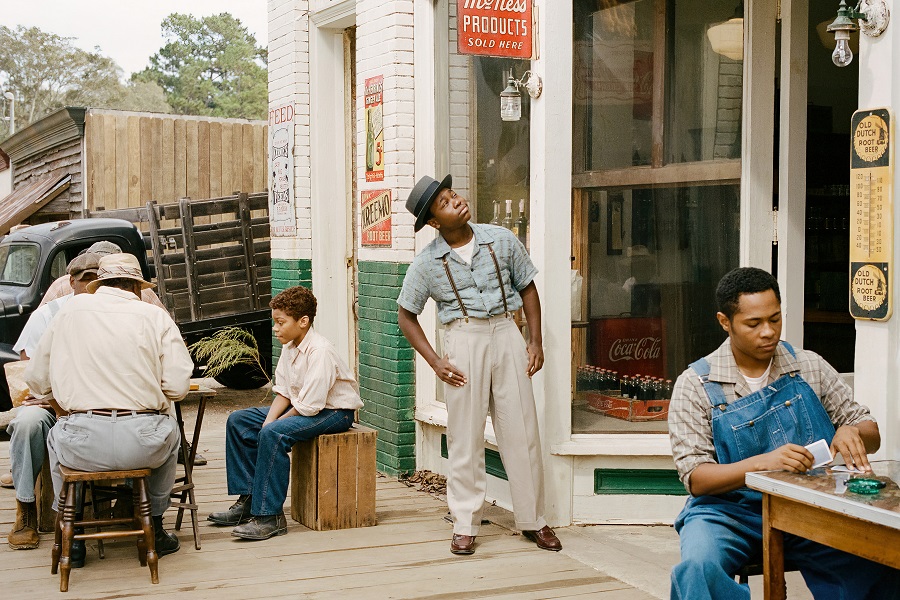
The story of Emmett Till, a 14-year-old boy from Chicago who was lynched after whistling at a white woman while visiting his cousins in Mississippi in 1955, is a horrific stain on the history of the United States. Only this year was anti-lynching legislation named after Emmett signed into law, and the violence that all too often occurs against people of color has simply transformed from something ignored by the law to something encouraged by it in allegedly dangerous situations. Chinonye Chukwu’s Till is a vivid reminder of who Emmett was and how his death sparked his mother to work tirelessly to spare any other parent from experiencing what she had.
Till centers on Mamie (Danielle Deadwyler), who is concerned about her son’s safety even before he leaves to go see his preacher uncle, Moses Wright (John Douglas Thompson), in Money, Mississippi, aware that the way he has been raised in Chicago has not prepared him for the cruel realities of the South. Emmett (Jalyn Hall) is unenthused about picking cotton in the fields and, while shopping at a local convenience store, whistles at the white cashier (Haley Bennett). He is taken by force that night by her vengeful relatives and his brutally beaten body is found several days later. His death spurs Mamie to put aside her own grief and show the world the hate that exists which has robbed her of her only son.

At a Q & A following an NYFF screening of the film, producer Whoopi Goldberg, who also appears as Mamie’s mother, expressed that everyone thinks they know the story of Emmett Till but they really don’t, and likened it to The Diary of Anne Frank as a critical educational tool that helps to communicate the universality of this story. This dramatization does highlight Emmett’s innocence and general likability, shrugging off the concerned looks he gets following that fateful whistle and unable to truly comprehend what is happening as he is suddenly and unwillingly marched out from a place of safety to his untimely death.
The retelling of this story, particularly for a new generation, is vitally important, with systemic racism now further distanced from a public and unapologetic lynching by intolerant civilians to instances of violence that can seem somehow less objectionably indefensible. To think that, if he were alive today, Emmett would have recently turned eighty-one years old is staggering. Chukwu did communicate a clear intention not to show violence against black bodies, choosing instead to hear Emmett’s confused screams rather than see the accompanying blows, paying tribute to his legacy and what he suffered without re-traumatizing audiences with having to visually witness his torment.

Till tells Emmett’s story but spends the most time on his mother, who lived until 2003 and served as a mentor to Keith Beauchamp, a co-writer of the film who has spent much of his career documenting and research Emmett’s murder and Mamie’s subsequent activism. Deadwyler puts her entire self into her performance, channeling the unfortunate fulfillment of her greatest fears into a passionate fight for justice. She is particularly effective at communicating the heartbreak of having to champion a larger cause when all she wants to do is cry for her son and having to hold back fury as she is insulted and mocked by attorneys and spectators at the trial of his murderers.
Till is bursting with color, specifically in its costumes, a purposeful choice by Chukwu meant to show the vibrancy of Black communities. It accomplishes the difficult task of paying homage to Emmett, Mamie, and all the other inspirations for its characters without sensationalizing their pain or dialing it up for cinematic value. This is a sensitive, powerful follow-up to Chukwu’s debut feature, Clemency, demonstrating once again that she has a sharp eye for fleshing out the subjects of her stories and letting them take hold of their narratives. From everything that can be newly discovered in her film, the glaring hypocrisy of those who claim the rule of law to defend their own illegal actions stands out, but there is also a beauty and humanity to those who were more than just victims that shines through strongly.
Grade: B+
Check out more of Abe Friedtanzer’s articles.
After making its world premiere at the New York Film Festival in the Main Slate, Till will be released in theaters on Friday, October 14th.

